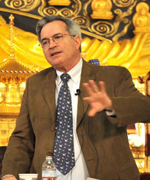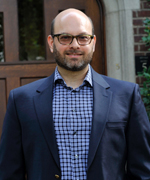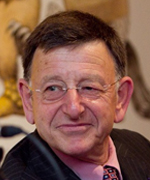Approaches to Translation & Transmission
In this session, two world-renowned specialists in the area of translation and translation theory engaged in discussion with Buddhist studies scholars Luis Gomez and Jonathan Gold. Luis Gomez begins the session with a wide ranging and detailed speech on translation theory and practice, including challenges faced by the translator of a family of discourses that try to be both specialized and inspirational, as well as translation into more than one language and what that may reveal about the nature of the “source” and the “target” texts. Jonathan Gold then provides a short discussion of Sakya Pandita’s insights on translation. In his [Sapan’s] view, it was never intended that the translations should stand on their own as words on a page; they could be passed from generation to generation and from context to context, but only as long as they were transmitted through an intellectual community of knowledgeable experts. This conservatism was not the result of linguistic realism or essentialism, which would have been anathema to this great philosopher of emptiness. It is simply an extension of the pragmatic assumptions implicit in the Buddhist tradition that the dharma always needs to be carried forward by the community of practitioners, the sangha. Susan Bassnett continues the discussion by offering thoughts on ‘culture bumps’, those points in a translation where meaning is so culture-bound that it poses problems for a translator. David Bellos discusses the difference between names and nouns and concludes that using xenisms (such as those used by Buddhist translators in many cases) is tantamount to treating concepts as names, which has many advantages—but also falls short of the ideal, if not the very idea, of translation.
Event: TT Conference 2017 – Plenary Session
Date: June 1, 2017 – 4:45 pm
Speakers: David Bellos, Jonathan Gold, Luis Gomez, Susan Bassnett
Topics: Innovation, Translation, Transmission

Luis Gómez
Profesor Investigador, El Colegio de México; Thurnau Emeritus Professor, University of Michigan; Academic Director, Mangalam Research Center
Luis O. Gómez, is Research Professor at El Colegio de México, México, DF., Academic Director at the Mangalam Research Centers for the Study of Buddhist Languages, Berkeley, CA, and Thurnau Professor Emeritus of Asian Languages and Cultures at the University of Michigan. He holds a PhD in East and South Asian Languages and Literatures from Yale University, and an MA and PhD in Clinical Psychology from the University of Michigan. He delivered the Stewart Lectures at Princeton, April 24-30, 1997, and the Clark and Horowitz Lectures at Pomona College. He has been Numata Visiting Professor at the University of Hamburg (2013) and Shinnyo-en Visiting Professor at the Ho Center for Buddhist Studies at Stanford University (2013). Some of his books include The Land of Bliss, the Sukhāvatīvyūha Sūtras, and The Literature of the Great Vehicle.

Susan Bassnett
University of Warwick
Susan Bassnett is Professor of Comparative Literature at the University of Warwick and has just been appointed Special Adviser in Translation Studies for a three-year period attached to the School of Modern Languages and Cultures. She established postgraduate programmes in Comparative Literature and then in Translation Studies at the University of Warwick where she also served twice as Pro-Vice-Chancellor. She continues to lecture and run workshops around the world and her current research is on translation and memory. She is an elected Fellow of the Institute of Linguists, elected Fellow of the Royal Society of Literature and a Fellow of the Academia Europaea. In recent years she has acted as judge of a number of major literary prizes including the Times/Stephen Spender Poetry in Translation Prize, the Independent Foreign Fiction Prize and the IMPAC Dublin prize. She is also known for her journalism, translations and poetry.

Jonathan Gold
Princeton University
Jonathan C. Gold teaches courses on the religions of India and Tibet at Princeton University, and his research focuses on Sanskrit and Tibetan Buddhist intellectual traditions--especially theories of interpretation, translation, and learning. His book, Paving the Great Way: Vasubandhu’s Unifying Buddhist Philosophy (2015), traces a continuity of philosophical interest and purpose across diverse works attributed to one of Buddhism’s greatest philosophers. His first book, The Dharma’s Gatekeepers: Sakya Pandita on Buddhist Scholarship in Tibet (2007), explains the nature of language and the role of the scholar from the unique perspective of a great thirteenth-century Tibetan philosopher. Current projects include studies in Buddhist ethics through the Tibetan “Three Vows” (sdom gsum) literature and Śāntideva’s Bodhicaryāvatāra, and a trans-national history of the doctrine of non-violence. He is founder of the Princeton University Buddhist Ethics Reading Group and co-chair of the Columbia University Seminar on Comparative Philosophy.

David Bellos
Princeton University
David Bellos is professor of French and Comparative Literature at Princeton, where he also directs the Program in Translation and Intercultural Communication. He has translated works by Georges Perec, Ismail Kadare, Fred Vargas and many others and is also the author of literary biographies of Georges Perec, Jacques Tati, and Romain Gary. His irreverent essay on translation, Is That A Fish In Your Ear? Translation and the Meaning of Everything, was published in 2011.
